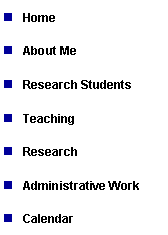
|
Muhammad Abid |
|
Professor |


|
EE–210: Electrical Machines—I |

|
Instructor |
Muhammad Abid Room # SE–104, Ext: 3440 |
||||||||||
|
|
|
||||||||||
|
Course |
Course Code and Title: EE–210 Electrical Machines—I Level: Undergraduate Pre–requisite: Basic knowledge of Circuit Analysis and differential Equations, (EE-110, PAM-255) Course Website: www.pieas.edu.pk/abid/index_files/EM_I.htm Course Material: Click here (Accessible in PIEAS, use internet explorer) |
||||||||||
|
|
|
||||||||||
|
Course Objectives |
1. Understanding of basic principle of electrical machines 2. Detailed analysis and design of transformer 3. Detailed Study of DC motors and generators |
||||||||||
|
|
|
||||||||||
|
Recommended Text |
1. S. J. Chapman, Electric Machinery Fundamentals, McGraw Hill, 4th Edition, 2003. 2. Bhag S. Guru, Electric Machinery and Transformers, Oxford University Press, 3rd Edition ,2000. 3. E. Hughes, Electrical and Electronic Technology, Pearson Prentice Hall, 10th Edition , 2008. |
||||||||||
|
|
|
||||||||||
|
Computer Usage |
Student will use MATLAB for the analysis and design of problems. |
||||||||||
|
|
|
||||||||||
|
Assignments |
There will be regular assignments during the session. Each of these assignments will be due in the following lecture. Late submission and copied assignments will not be accepted. |
||||||||||
|
|
|
||||||||||
|
Examination |
There will be two sessional exams and one terminal exam; the dates will be announced by the course-coordinator/examination cell. There will be 4–5 quizzes during the lecture hours; most of these quizzes will not be announced in advance. |
||||||||||
|
|
|
||||||||||
|
Grading |
|
||||||||||
|
|
|
||||||||||
|
Course Contents |
Rotational Motion, Newton’s Laws and Power Relationship; Magnetic Field and Magnetic Circuits; Properties of Magnetic Materials; Faraday’s Law; Forces and Torque in Magnetic Field; Induced voltage on a Conductor Moving in Magnetic Field; Theory and Operation of Single Phase Transformer; Voltage Regulation and Efficiency; DC Machines and their Construction Features; Commutation and Armature Construction; Cross Magnetizing and Demagnetizing Ampere Turns; Compensating Windings; The Internal Generated Voltage and Induced Torque Equation; Power Flow and Losses; DC Motors; Principal and Equivalent Circuit; Back EMF; Types of DC Machines and their Torque-Speed Characteristics; DC Motor Starter; Ward-Leonard System; DC Motor Efficiency; DC Machine Construction and Testing; DC Generators and their Fundamentals; Various Types of DC Generators and their Characteristics; Parallel Operation of Shunt Generators; Compound/Series Generators in Parallel; Uses of DC Generators. |
||||||||||
|
|
|
||||||||||
|
|
|
||||||||||
|
|
|